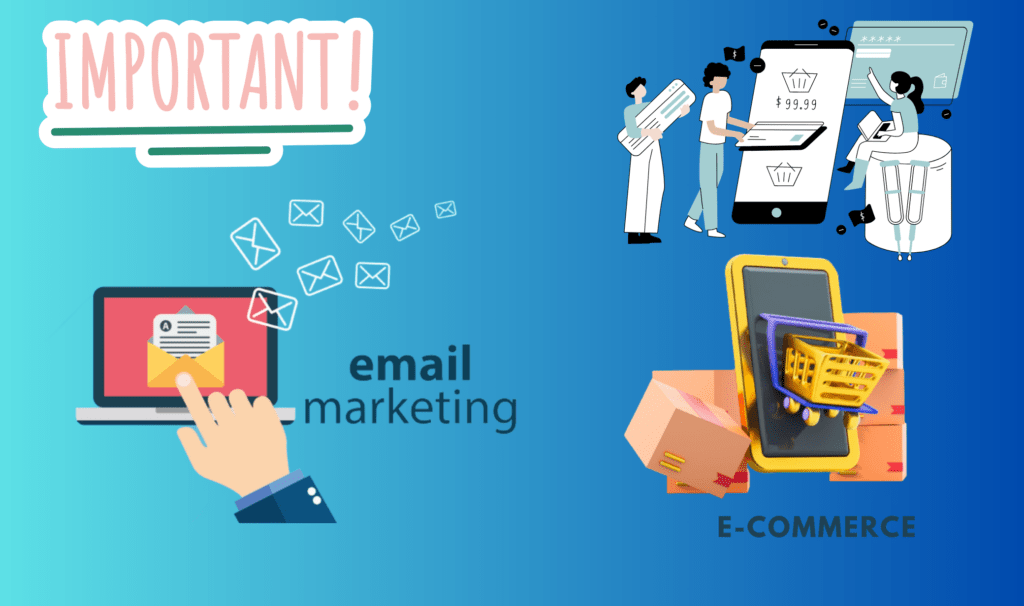Email marketing is an essential part of any successful e-commerce business. It is a powerful tool that helps businesses build and maintain strong relationships with their customers while promoting their products and services. In this article, we will discuss the importance of email marketing for e-commerce businesses and how it can help increase sales and customer engagement.
Personalized Communication One of the most significant benefits of email marketing is the ability to personalize communication with customers. Emails can be tailored to specific customer segments based on their past purchase history, interests, and behavior. By sending personalized emails, e-commerce businesses can offer relevant content and product recommendations that customers are more likely to engage with.
Cost-Effective Email marketing is a cost-effective way to reach out to customers. It doesn’t require a massive budget, and the return on investment (ROI) is usually high. According to a study by DMA, the average ROI for email marketing is around 38:1, meaning that for every $1 spent, the return is $38
Email marketing is one of the most cost-effective marketing channels available for e-commerce businesses. Unlike traditional advertising, email marketing allows businesses to reach their customers directly at a fraction of the cost. E-commerce businesses can save on advertising costs, printing, and postage by utilizing email campaigns instead. In addition, email marketing software is affordable and easy to use, with many platforms offering free trials and low-cost options for small businesses.
Another cost-saving aspect of email marketing is its ability to automate campaigns. E-commerce businesses can set up automated email campaigns to welcome new subscribers, provide order confirmations, and offer product recommendations based on purchase history. This automation saves time and money while providing a more personalized experience for the customer.
Increased Sales Email marketing is a powerful tool to drive sales. By offering promotions and discounts through email campaigns, e-commerce businesses can incentivize customers to make a purchase. Email campaigns can also be used to promote new products and provide customers with updates on their favorite products.
In addition to promoting products, email marketing can also increase sales by providing a more personalized shopping experience. By sending targeted product recommendations based on customers’ past purchases and interests, e-commerce businesses can increase the likelihood of a sale. Personalized content and messaging also help customers feel valued and engaged with the brand, which can lead to increased loyalty and repeat purchases.
Customer Engagement Email marketing allows e-commerce businesses to engage with customers in a meaningful way. By sending regular updates and information on products, customers feel more connected to the brand. This connection can lead to increased customer loyalty and advocacy.
Another way email marketing can increase customer engagement is by providing opportunities for feedback and interaction. E-commerce businesses can use email campaigns to ask for feedback on products or services, provide customer surveys, and offer opportunities for customers to share their thoughts and experiences with the brand. This type of interaction not only helps businesses improve their offerings but also makes customers feel valued and heard.
Finally, email marketing can increase customer engagement by providing a more personalized experience. By sending targeted content and product recommendations based on customers’ interests and behaviors, e-commerce businesses can create a more meaningful connection with their customers, leading to increased engagement and loyalty.
Build Brand Awareness Email marketing is an excellent way to build brand awareness. By sending regular emails, e-commerce businesses can keep their brand top of mind for customers. This can lead to increased recognition and visibility, which can translate to increased sales
Measure and Optimize Email marketing allows e-commerce businesses to measure and optimize their campaigns. By tracking open rates, click-through rates, and conversion rates, businesses can identify what is working and what is not. This information can then be used to improve future campaigns and increase ROI.
In conclusion, email marketing is an important tool for e-commerce businesses. It is cost-effective, personalized, and allows businesses to engage with customers in a meaningful way. By leveraging email marketing, businesses can increase sales, build brand awareness, and foster customer loyalty.






One thought on “The Importance of Email Marketing for E-commerce: Boosting Sales, Engagement, and Brand Awareness”
Pingback: The Do's And Don'ts Of Email Marketing: A Comprehensive Guide. - Tinytech Things
Comments are closed.